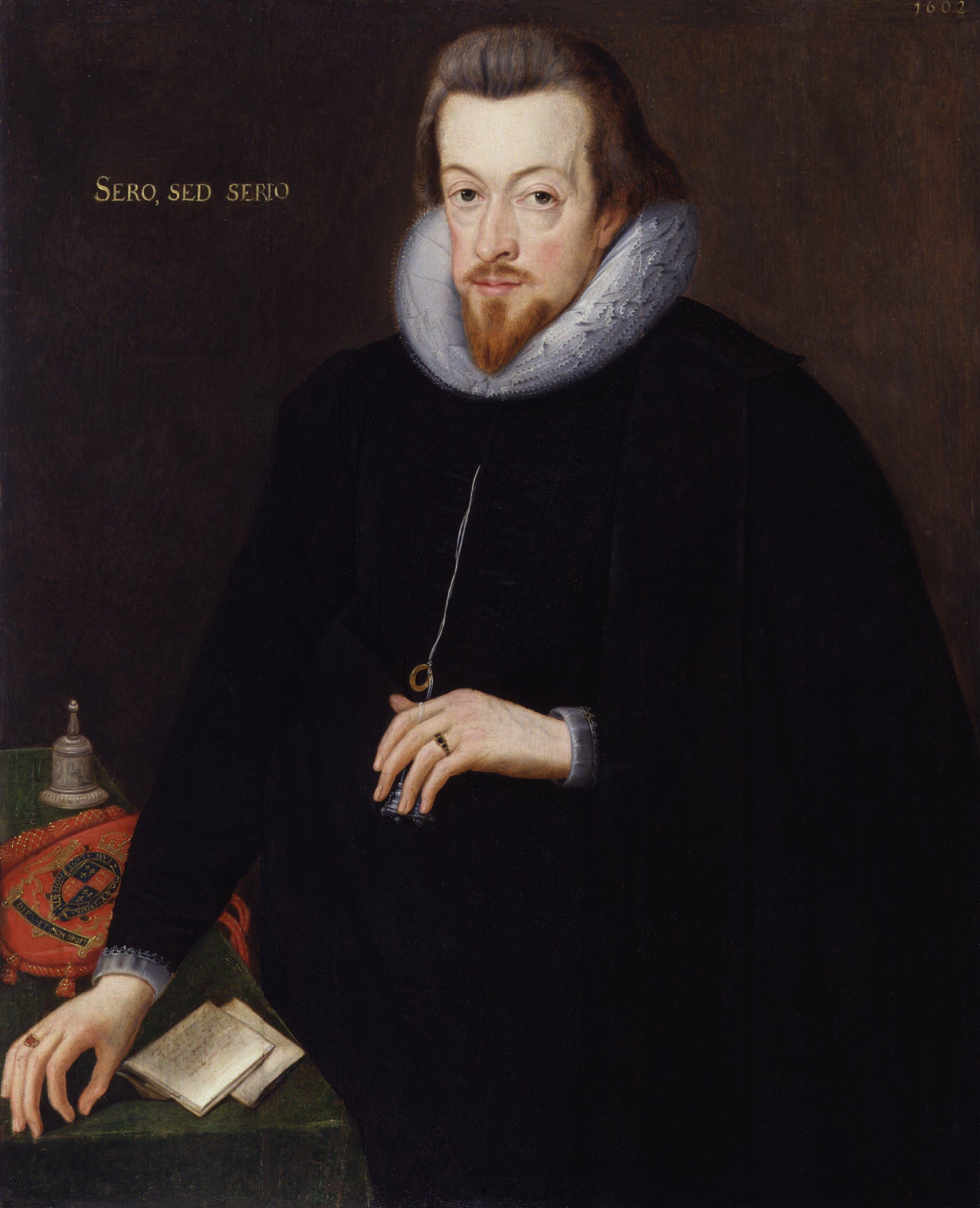William Cecil: Family Life
Chapter 5 : Robert
Cecil’s second son, Robert, was initially more successful in his marital career than his sisters. He married Elizabeth Brooke, the daughter of 10 th Lord Cobham in 1586, when he was 22. The couple had three children before Elizabeth’s untimely death in 1597. Robert mourned her deeply and, unusually, never remarried. His descendants are the Marquesses of Salisbury.

Robert was certainly more successful in his political career than his brother. It seems that Cecil groomed him from an early age to be his political heir. Perhaps Robert’s physical infirmity made him more interested in studying and politics, or perhaps Cecil had learnt from the mistakes he made with Thomas and spent more time with his younger son. Robert received expert tuition in Latin, Greek, Mathematics and all of the other subjects considered essential to the Humanist education. He then went on to study law at Gray’s Inn, where he was admitted in 1580.
Like his brother, twenty years before, Robert travelled abroad for a short period, studying at the Sorbonne. When he came home, he sat in the House of Commons for Westminster. By 1587, Cecil was promoting him to the Queen as a suitable man to take over some over some of his duties, a message he repeated over the next few years. Eventually, in 1596, Elizabeth appointed Robert to the role of Secretary – the position Cecil had held when she first came to the throne. But such a promotion caused a good deal of envy at court – particularly in the faction surrounding the Earl of Essex, and his sister, Lady Penelope Rich.
A Time of Loss
The late 1580s were a time of loss for Cecil. In 1588, he lost his daughter Anne, his mother (who must have been getting on for ninety), and then, in 1589, his wife of over forty years. His grief was heavy. He wrote that they had
‘lived in continual love without any separation or any offence.’
Mildred was buried with her daughter, Anne, Countess of Oxford in Westminster Abbey. Cecil paid for a sumptuous monument, in which the two of them are surrounded by the kneeling figures of Anne’s daughters, Lady Elizabeth, Lady Bridget and Lady Susan de Vere, and Mildred’s son, Robert.
Despite this, when his own time came, Cecil chose to be buried in Stamford, by the side of his parents, in the country he always thought of as his.


